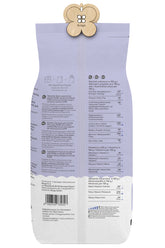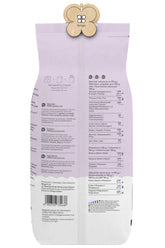Acetylsalicylic acid, also known as aspirin, is one of the most well-known and widely used pharmaceutical substances worldwide. This versatile compound has a fascinating history and plays a crucial role in pharmacy and medicine. In this blog post, we will take a closer look at the synthesis, properties, and applications of acetylsalicylic acid.
The Discovery of Acetylsalicylic Acid
The history of acetylsalicylic acid begins in the 19th century when German chemist Felix Hoffmann developed a method for producing acetylsalicylic acid in 1899. Hoffmann was working for Bayer AG at the time and sought a way to improve the pain-relieving and anti-inflammatory effects of salicylic acid without the unpleasant side effects like stomach irritation. The acetylation of salicylic acid produced acetylsalicylic acid, which was significantly better tolerated and quickly gained popularity.
Acetylsalicylic Acid Synthesis
The synthesis of acetylsalicylic acid occurs in a two-step process. First, salicylic acid is produced from willow bark or synthesized. In a second step, the salicylic acid is then acetylated with acetic anhydride, resulting in acetylsalicylic acid. This process has been optimized and industrially scaled over time to meet the growing demand for acetylsalicylic acid.
Properties of Acetylsalicylic Acid
Acetylsalicylic acid is a white, crystalline powder with a characteristic, slightly sour odor. It is poorly soluble in water but readily soluble in organic solvents such as ethanol or acetone. Acetylsalicylic acid is a weak acid with a pKa value of 3.5, which influences its solubility and absorption in the body.
In addition to the analgesic (pain-relieving), antipyretic (fever-reducing), and anti-inflammatory effects already exhibited by salicylic acid, acetylsalicylic acid also has an antiplatelet property. This allows it to influence blood clotting and is therefore also used for the prevention of cardiovascular diseases.
Pharmaceutical Properties and Applications
Acetylsalicylic acid is used in a wide range of medications because it is a versatile and highly effective active pharmaceutical ingredient. In addition to its use as a pain and fever reliever, it is used in thrombosis prophylaxis, for treating inflammation, and even in cancer therapy.
Pain and Fever Reduction
The analgesic and antipyretic effects of acetylsalicylic acid make it an effective remedy for headaches, muscle and joint pain, as well as fever. It inhibits prostaglandin synthesis, thereby reducing the transmission of pain signals and the inflammatory response.
Thrombosis Prophylaxis
Due to its antiplatelet properties, acetylsalicylic acid is used to prevent cardiovascular diseases such as heart attack and stroke. It prevents platelet aggregation and thus the formation of blood clots.
Anti-Inflammatory Effect
The anti-inflammatory effect of acetylsalicylic acid makes it an important medication for treating inflammation, such as that which occurs in rheumatism, osteoarthritis, or gout. It inhibits the formation of inflammatory mediators like prostaglandins and leukotrienes.
Cancer Therapy
Recent research suggests that acetylsalicylic acid may also play a role in cancer therapy. It appears to prevent or at least delay the development of certain cancers such as colon, breast, and prostate cancer. The exact mechanism of action is still the subject of intensive research.
Safety and Side Effects
Although acetylsalicylic acid is generally well tolerated, improper use or overdose can lead to side effects. These include gastrointestinal discomfort, bleeding, tinnitus (ringing in the ears), and allergic reactions. Special caution is required in children and adolescents, as in rare cases it can lead to life-threatening Reye's syndrome.
Conclusion
Acetylsalicylic acid, better known as aspirin, is a key compound in pharmacy and medicine. Since its discovery over 120 years ago, it has become one of the most widely used medications worldwide. Its diverse effects, from pain and fever management to thrombosis prophylaxis and potential cancer therapy, make it an indispensable component of modern healthcare. Despite some side effects, the benefits outweigh them, ensuring that acetylsalicylic acid will continue to play an important role in pharmacy and medicine in the future.































































































































